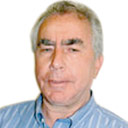Martin A Schwartz

January 11, 2013 | Daily Business Review
Board of Contributors: Recent rulings on condo contracts have widespread significanceTwo cases from New York and North Carolina have significance for Florida condominium sales practices, writes Martin A. Schwartz of Miami-based Bilzin Sumberg Baena Price & Axelrod.
By Martin A. Schwartz
5 minute read

May 29, 2012 | New York Law Journal
Grand Jury Witnesses Absolutely Immune From §1983 LiabilityIn his Section 1983 Litigation column, Martin A. Schwartz, a professor at Touro Law Center, reviews the recent U.S. Supreme Court opinion in 'Rehberg v. Paulk' that held that grand jury witnesses enjoy the same absolute immunity as trial witnesses, protecting not only the in-court testimony of grand jury witnesses, but also alleged conspiracies to give perjured testimony and witness preparation.
By Martin A. Schwartz
11 minute read

April 18, 2008 | New York Law Journal
Public Interest LawMartin A. Schwartz, a law professor at Touro College - Jacob D. Fuchsberg Law Center, writes that wrongful convictions have long been one of the most troubling aspects of American law. It is understood, of course, that the criminal justice system is not, and cannot be, totally free of error. Nevertheless, the fact that "a large number of innocent people have been convicted of serious crimes, an alarming number of whom were sentenced to death [,]" cries out for procedural protections.
By Martin A. Schwartz
15 minute read

March 05, 2013 | New York Law Journal
Developments in Prosecutorial ImmunityIn his Section 1983 Litigation column, Martin A. Schwartz, a professor at Touro Law Center, writes: The distinction between advocacy, for which prosecutors are protected by absolute immunity, and administrative/investigative functions, which receive qualified immunity, is not always all that clear. The lower federal courts are faced with unraveling this dichotomy on an ongoing basis, and it is the subject of important recent circuit court decisions.
By Martin A. Schwartz
15 minute read

May 03, 2013 | New York Law Journal
More Developments in Prosecutorial ImmunityIn his Section 1983 Litigation column, Martin A. Schwartz, a professor at Touro Law Center, writes that absolute immunity protects prosecutors sued under Section 1983 for carrying out their advocacy functions, but receive only qualified immunity for functions essentially investigative or administrative in nature.
By Martin A. Schwartz
16 minute read

February 09, 2006 | New York Law Journal
Public Interest LawMartin A. Schwartz, a law professor at Touro College's Jacob D. Fuchsberg Law Center, reviews a recent Second Circuit decision holding that the admission of expert testimony that police officers are likely to tell the truth about the use of deadly force was prejudicial error, a decision which provides a springboard for analyzing evidentiary issues likely to be at issue in �1983 Fourth Amendment excessive force cases.
By Martin A. Schwartz
15 minute read

February 01, 2007 | New York Law Journal
Public Interest LawMartin A. Schwartz, a law professor at Touro College, writes that the decision in Paul v. Davis, which stated that there is a deprivation of liberty only when a government stigma is accompanied by the deprivation of some tangible interest, has never made much sense doctrinally, and despite an extensive body of circuit court decisional law, the lower courts continue to experience difficulties in applying the doctrine. A series of recent Second Circuit decisions provides badly needed guidance.
By Martin A. Schwartz
14 minute read

June 15, 2004 | New York Law Journal
Public Interest LawMartin A. Schwartz, a law professor at Touro College - Jacob D. Fuchsberg Law Center, analyzes the U.S. Supreme Court's decision in Maryland v. Pringle, holding that a police officer had probable cause to arrest all three men in a vehicle where cocaine was discovered.
By Martin A. Schwartz
12 minute read

May 25, 2007 | New York Law Journal
Public Interest LawMartin A. Schwartz, a law professor at Touro College - Jacob D. Fuchsberg Law Center, analyzes a recent decision that drew a line between between permissible and impermissible opinion testimony about the use of force so fine as to be virtually meaningless.
By Martin A. Schwartz
15 minute read

February 02, 2009 | New York Law Journal
Public Interest LawMartin A. Schwartz, a law professor at Touro Law Center, writes that two Second Circuit decisions in In re County of Erie resolve several important issues. Undoubtedly, he notes, the analyses would have been sharper, but even more complex, if somewhere along the way the circuit court identified the "client" as the county, its officers, or both the county and its officers.
By Martin A. Schwartz
11 minute read
Trending Stories
- 1Gibson Dunn Sued By Crypto Client After Lateral Hire Causes Conflict of Interest
- 2Trump's Solicitor General Expected to 'Flip' Prelogar's Positions at Supreme Court
- 3Pharmacy Lawyers See Promise in NY Regulator's Curbs on PBM Industry
- 4Outgoing USPTO Director Kathi Vidal: ‘We All Want the Country to Be in a Better Place’
- 5Supreme Court Will Review Constitutionality Of FCC's Universal Service Fund
More from ALM
- Legal Speak at General Counsel Conference East 2024: Match Group's Katie Dugan & Herrick's Carol Goodman 1 minute read
- Legal Speak at General Counsel Conference East 2024: Eric Wall, Executive VP, Syllo 1 minute read
- Legal Speak at General Counsel Conference East 2024: Virginia Griffith, Director of Business Development at OutsideGC 1 minute read



